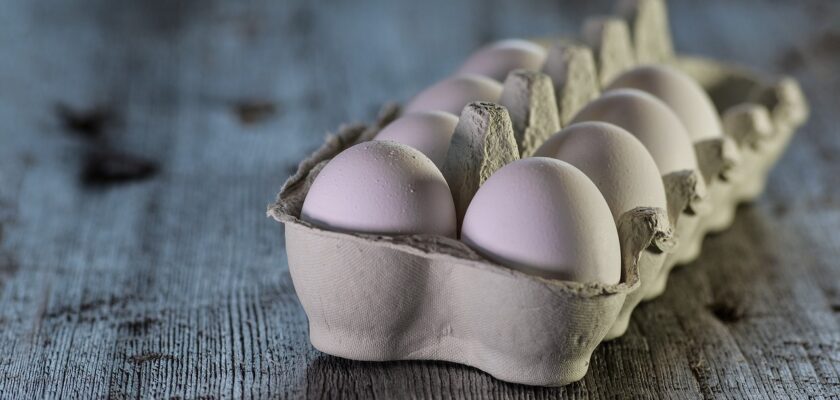Introduction: Why Understanding Egg Freshness Matters
Eggs are a staple in kitchens across the world, but not all eggs are created equal. Especially when it comes to unpasteurized eggs, knowing how long they last is crucial for your health and your culinary success. Nothing ruins a Sunday brunch faster than an off-smelling omelet! Let’s break down everything you need to know to keep your eggs — and your meals — safe and delicious.

What Are Unpasteurized Eggs?
Unpasteurized eggs are raw eggs that haven’t undergone heat treatment to kill bacteria like Salmonella. They are often preferred for their richer flavor and more natural texture, making them popular among chefs and home bakers who want authentic results.
The Difference Between Pasteurized and Unpasteurized Eggs
Simply put, pasteurized eggs have been gently heated to kill pathogens without cooking the egg, while unpasteurized ones are completely raw.
| Type | Process | Safety | Common Uses |
| Pasteurized | Light heat treatment | Safer for raw consumption | Meringues, raw cookie dough |
| Unpasteurized | No treatment | Higher risk of contamination | Baking, cooking, direct consumption |
Factors That Affect the Shelf Life of Unpasteurized Eggs
Several factors impact how long your unpasteurized eggs last:
- Temperature: Warmer temps speed up spoilage.
- Humidity: Too much moisture encourages bacteria.
- Handling: Dirty hands or utensils contaminate eggs quickly.
- Shell Integrity: Cracks allow bacteria to enter faster.
How Long Do Unpasteurized Eggs Last at Room Temperature?
In the U.S., it’s recommended not to leave unpasteurized eggs out for more than 2 hours. Unlike some European countries where fresh eggs can sit out, American eggs are washed, stripping them of their natural protective coating.
How Long Do Unpasteurized Eggs Last in the Fridge?
Stored properly in a refrigerator at 40°F (4°C) or below, unpasteurized eggs can last:
- 3 to 5 weeks after being laid
- Always check the “sell by” date as a loose guide
- Store them in their original carton to minimize moisture loss
Can You Freeze Unpasteurized Eggs?
Yes, but with a few tricks:
- Crack the eggs into a bowl, beat until blended
- Pour into freezer-safe containers or ice cube trays
- Label and date them — they’ll last up to 1 year frozen!

Image by Matthias Böckel from Pixabay
How to Tell if Unpasteurized Eggs Are Still Good
Here’s a quick guide:
- Smell Test: Rotten eggs have a distinct, sulfuric odor.
- Float Test: Place egg in a bowl of water. If it floats, it’s bad.
- Shell Check: Cracked, slimy, or powdery shells = discard!
Storage Best Practices for Unpasteurized Eggs
- Keep eggs in the coldest part of the fridge, not the door.
- Store pointy end down to keep the yolk centered.
- Avoid washing eggs before storage to maintain their protective bloom.
Health Risks of Eating Expired Unpasteurized Eggs
Expired eggs can expose you to:
- Salmonella poisoning (nausea, vomiting, diarrhea)
- Severe foodborne illness for vulnerable groups like children, elderly, and immunocompromised individuals
- Hospitalization in extreme cases
Benefits of Fresh Unpasteurized Eggs
Despite the risks, fresh unpasteurized eggs offer:
- Richer taste and creamier texture
- Better baking performance (especially for soufflés and meringues)
- Nutritional advantages, retaining more natural enzymes and nutrients
Tips for Extending the Shelf Life of Your Eggs
Here’s how to make your eggs last longer:
- Store eggs in their carton, not loose.
- Keep fridge temperature consistent.
- Don’t wash eggs until right before use.
- Consider coating them lightly in mineral oil for long-term storage.
How Farmers Store Unpasteurized Eggs Naturally
Many small-scale farmers:
- Store eggs in cool, dark rooms (around 50°F)
- Rely on the natural “bloom” to keep eggs fresh for weeks
- Turn eggs periodically to keep the yolks from settling

Image by -Rita-👩🍳 und 📷 mit ❤ from Pixabay
Common Myths About Unpasteurized Egg Freshness
- Myth 1: Brown eggs last longer than white ones. (False)
- Myth 2: Eggs are good as long as they don’t smell. (Not always true — bacteria can still grow.)
- Myth 3: Room temp eggs are unsafe everywhere. (Depends on how the eggs were handled post-laying.)
Unpasteurized Egg Safety Guidelines for Home Cooks
- Always wash hands after handling raw eggs.
- Use sanitized utensils and cutting boards.
- Avoid cross-contamination by keeping eggs separate from other foods.
- Cook dishes with unpasteurized eggs to an internal temp of 160°F.
FAQs About Unpasteurized Egg Storage and Freshness
1. Can unpasteurized eggs be eaten raw?
Yes, but only if they’re very fresh and sourced from reputable farms. Still, there’s a risk of Salmonella.
2. How can I tell if my egg has gone bad without cracking it?
Use the float test — fresh eggs sink; old eggs float.
3. Are farm-fresh unpasteurized eggs safer than store-bought?
Not necessarily. Safety depends on handling and storage, not just source.
4. What happens if I accidentally eat a bad unpasteurized egg?
Monitor for symptoms like vomiting or diarrhea. Seek medical help if severe.
5. Should I wash my eggs after collecting them from my chickens?
Only if they’re visibly dirty. Washing removes the protective bloom.
6. Is the egg yolk color a sign of freshness?
No. Yolk color depends more on the hen’s diet than egg age.

Image by Ted Erski from Pixabay
Conclusion: Keeping Your Eggs Safe and Fresh Longer
Keeping unpasteurized eggs fresh and safe isn’t rocket science — it just requires a little know-how. From proper storage to recognizing spoilage signs, these simple practices protect your health and keep your recipes top-notch. Whether you’re whipping up fluffy pancakes or delicate custards, fresh, safe eggs are the foundation of every great dish.
